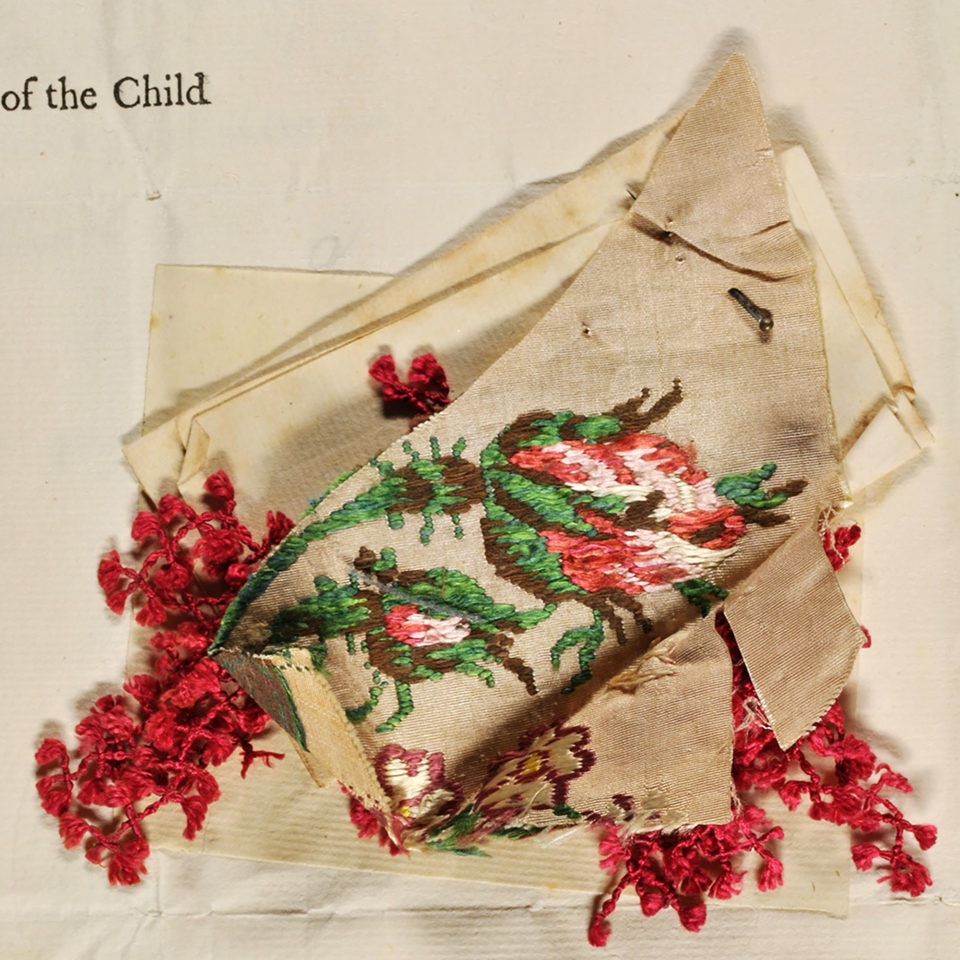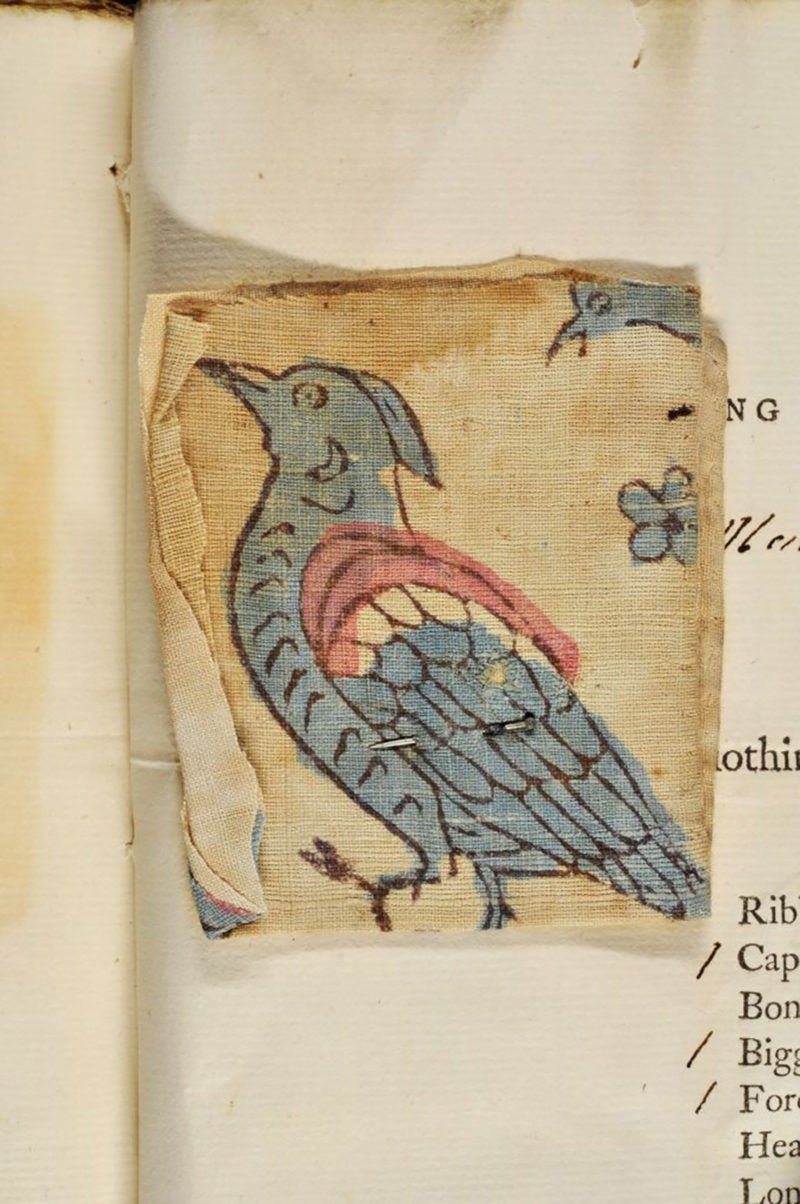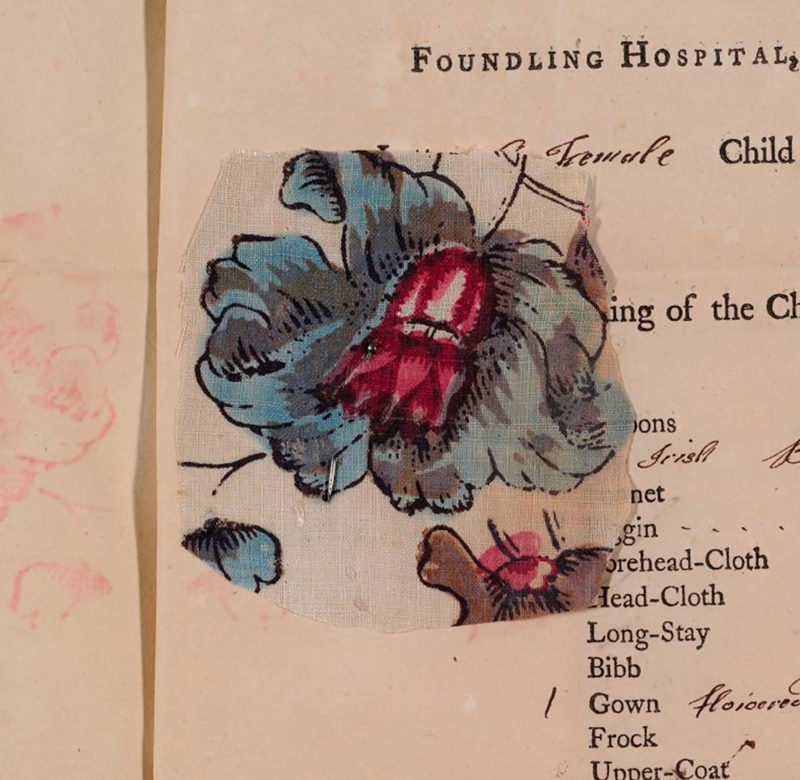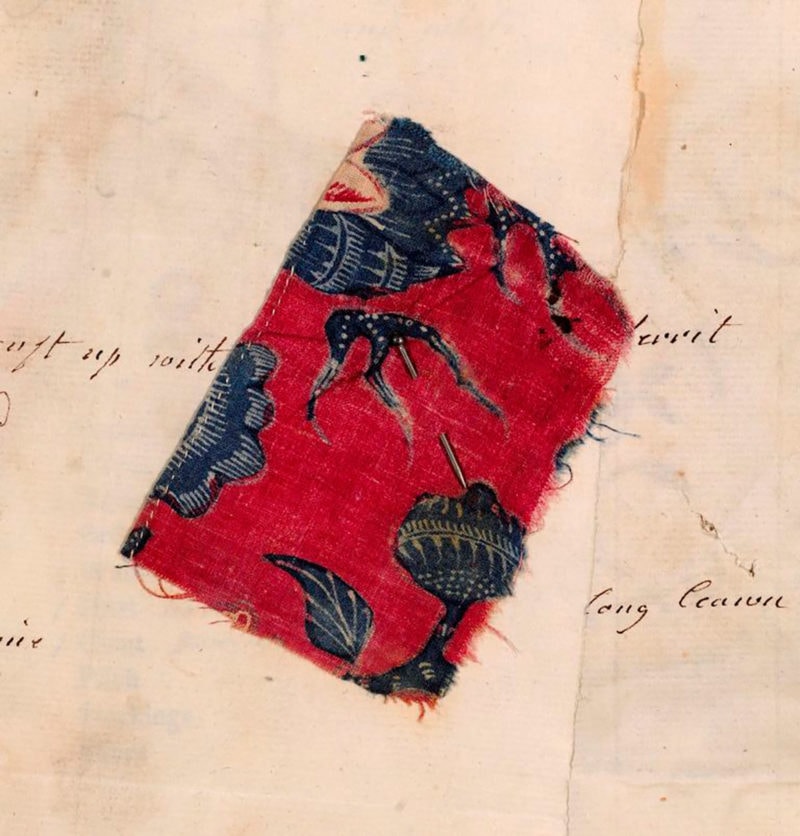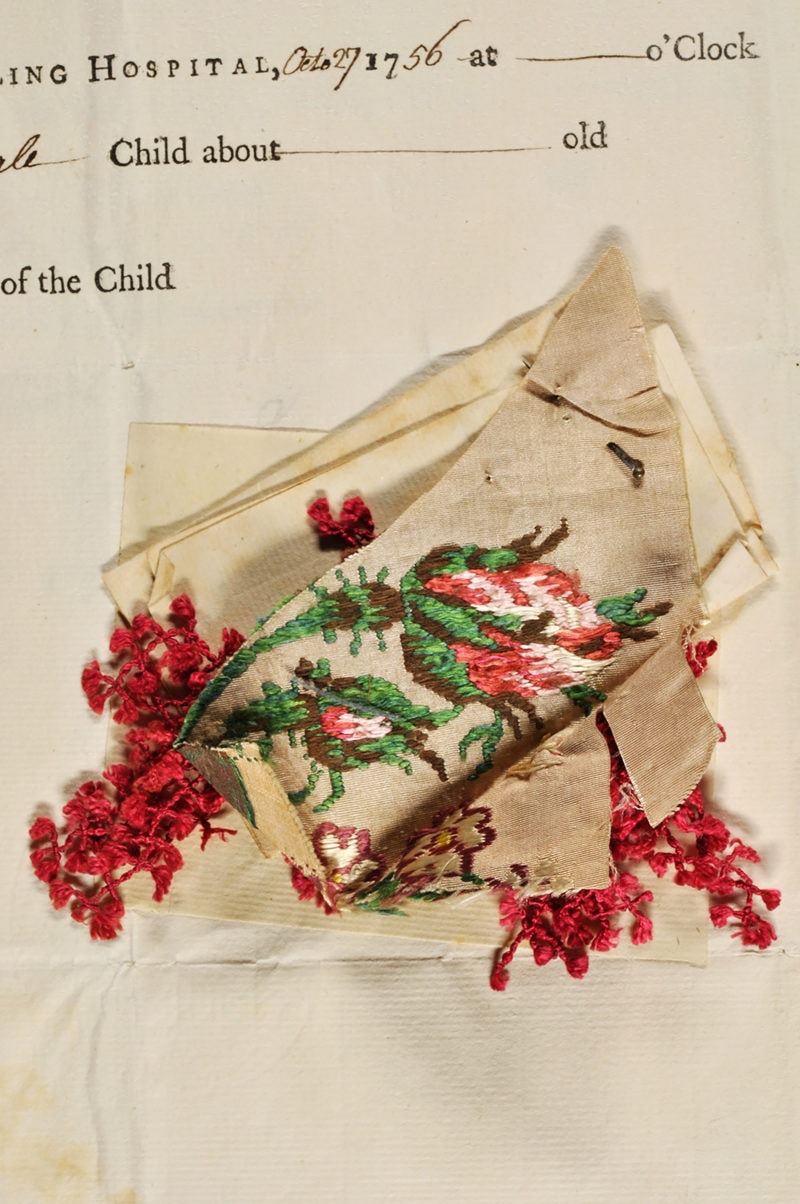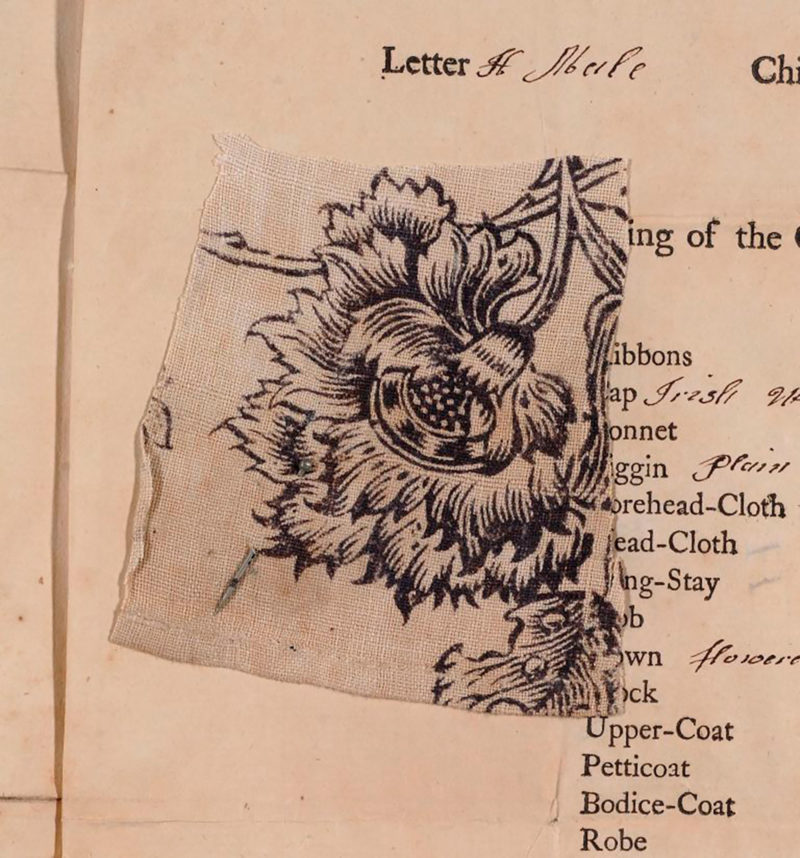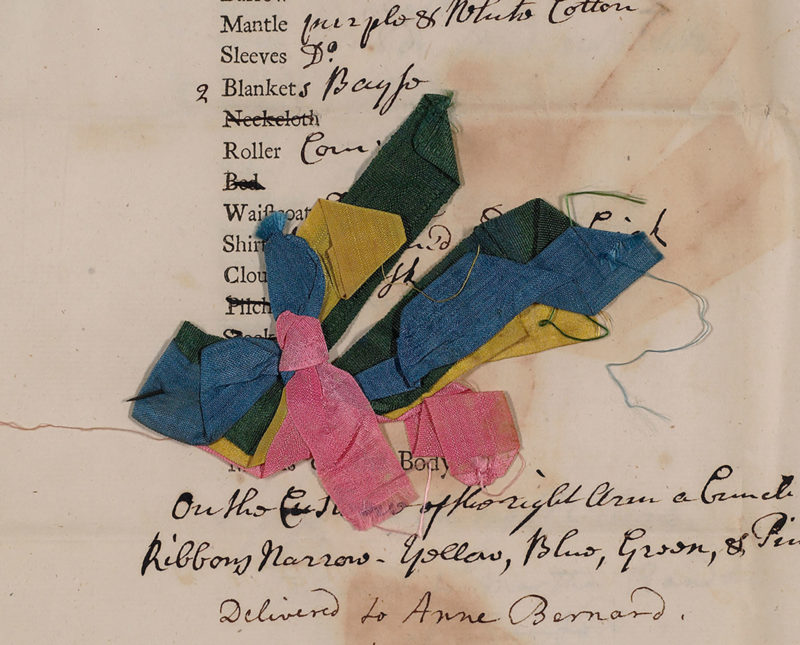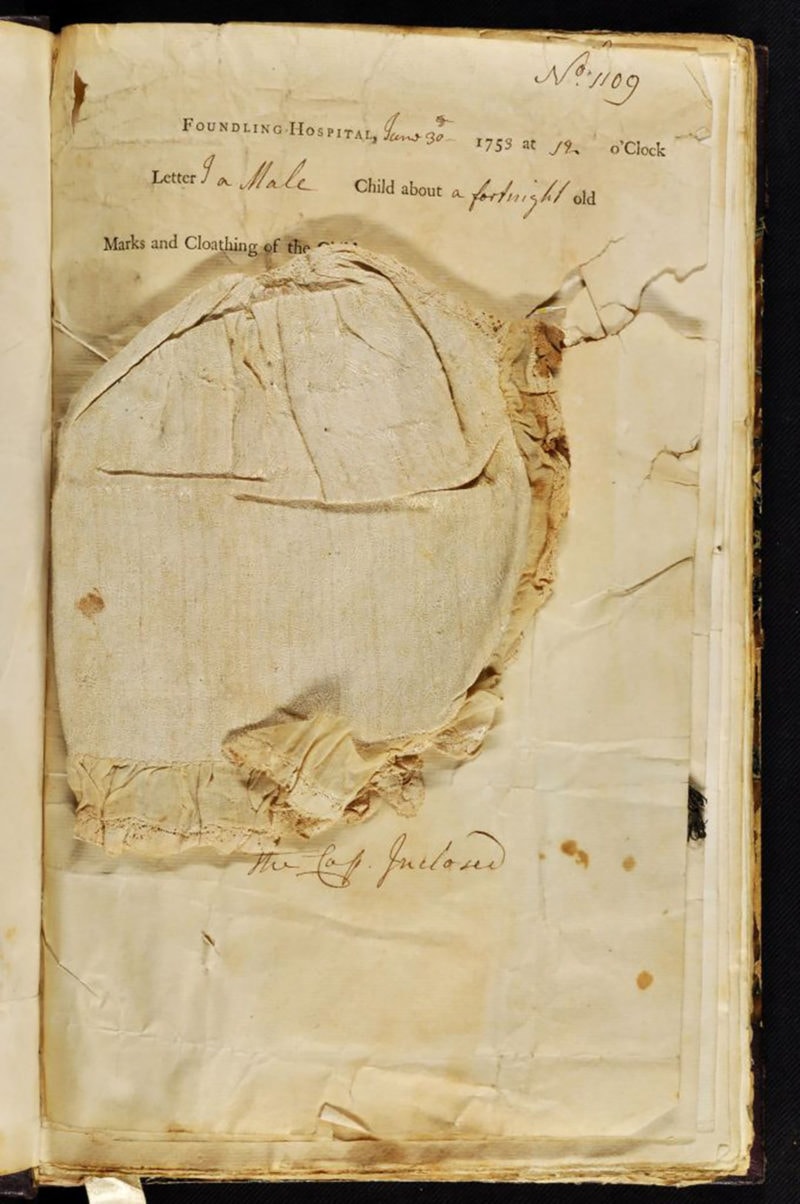This exhibition showcased never-before seen fabrics that illustrate the emotional moment of parting between mothers and their babies at the Foundling Hospital. In the case of more than 4,000 babies left at the Hospital between 1741 and 1760, a small object or token, usually a piece of fabric, was kept as an identifying record. The fabric was either provided by the mother or cut from the child’s clothing by the Hospital’s nurses. Attached to registration forms and then bound up into ledgers, these pieces of fabric form the largest collection of everyday textiles surviving in Britain from the eighteenth century.
A selection of these textiles were displayed, with the stories they tell of individual mothers and babies, alongside the artist William Hogarth’s depictions of the clothes, ribbons, embroidery and fabrics worn in the eighteenth century. Curator John Styles, Research Professor in History at the University of Hertfordshire describes the power of these humble objects:
‘The textiles are both beautiful and poignant, embedded in a rich social history. Each swatch reflects the life of a single infant child. But the textiles also tell us about the clothes their mothers wore, because baby clothes were usually made up from worn-out adult clothing. The fabrics reveal how working women struggled to be fashionable in the eighteenth century’
The exhibition also included representations from children, young people and families that work with Coram, who continue the Hospital’s charitable mission today. This element was curated by their Director of Operations, Renuka Jeyarajah-Dent.
A book created to accompany the exhibition, Threads of Feeling: The London Foundling Hospital’s Textile Tokens, 1740-1770, is available to purchase from the Museum Shop.
Click on the images below to read the stories of individual children left with textile tokens at the Foundling Hospital.
In the face of such testaments of tenderness, words are redundant
Slivers of everyday Georgian life make a triumphant return to their original home
